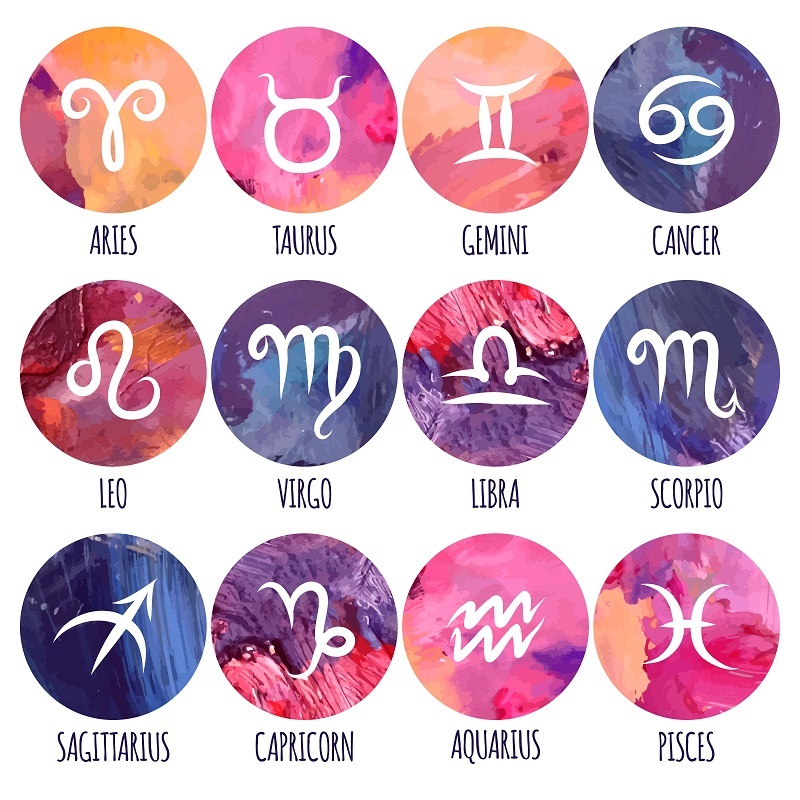Peony flowers and their fascinating symbolism explained
Posted on 29/08/2025
Peony Flowers and Their Fascinating Symbolism Explained
Peony flowers have been cherished for centuries for their dazzling beauty, lush blooms, and captivating fragrance. These ornamental flowers are more than just a feast for the eyes-- they're steeped in rich symbolism and have a unique place in different cultures around the world. In this comprehensive article, we'll unravel the fascinating symbolism of peonies, tracing their meaning through history, culture, and art. Dive in to discover all you need to know about the alluring world of peony flowers!

Introduction to Peony Flowers
The peony family, known for its strikingly vibrant petals and lush, full-bodied form, encompasses dozens of species and countless cultivated varieties. Native primarily to Asia, Europe, and Western North America, peonies flourish in gardens and bouquets worldwide. Their alluring appeal stretches back thousands of years--peonies are recorded in botanical and cultural texts from ancient China to Greece.
What Defines a Peony Bloom?
- Appearance: Large, sumptuous flowers, available in hues including pink, red, white, yellow, and coral.
- Fragrance: Many peonies emit a delightful, sweet scent, making them favorites for perfumes and weddings.
- Varieties: Popular types include Herbaceous Peonies, Tree Peonies, and Intersectional or Itoh Peonies.
- Bloom Time: Peonies grace gardens from late spring through early summer.
Given their lush petals and dramatic forms, it's no wonder the peony is a symbol of prosperity and romance. Yet, the meanings are as layered as the bloom itself.
Peony Flower Symbolism: A Journey Through Time and Cultures
The symbolism of peony flowers is as ancient and varied as the lands where they grow. Let's explore some of their most prominent meanings across the globe:
1. Peony Symbolism in Chinese Culture
In China, peonies are revered as the "King of Flowers"--a national emblem and an ancient symbol of honor, abundance, and feminine beauty. Their presence graces palaces, temples, artwork, and even festivals.
- Prosperity and Good Fortune: Peony blossoms are believed to attract riches and good luck. Historically, only aristocracy could cultivate peonies due to their royal status.
- Love and Romance: Frequently depicted in Chinese wedding decor, they embody a happy marriage and romantic affection.
- Spring and Renewal: As heralds of spring, peonies epitomize rejuvenation and growth.
- Honor and Respect: Their regal status garners esteem, making them symbols of dignity and deliberate grace.
During the Tang Dynasty, peony motifs were embedded in silk brocades and imperial gardens. To this day, gifting peonies is an auspicious gesture, underlining deep respect and heartfelt wishes.
2. Peonies in Japanese Symbolism
Japanese lore also holds the peony in high esteem, often depicting it in paintings and tattoos as a symbol of bravery, honor, and prosperity.
- Good fortune: Peonies are believed to guarantee wealth and inviting happiness into the home.
- Masculine strength and bravery: Unlike the feminine symbolism in China, Japanese tales often associate the peony's boldness with strength and courage.
- Beauty and transience: The impermanence of the peony bloom represents the ephemeral nature of life and beauty, a deeply rooted belief in Japanese aesthetics.
The peony's prominence in Japanese tattoo art reflects both its aesthetic charm and *deeper significance* as a talisman for boldness and good fortune.
3. Peony Meaning in Western Culture
Peony symbolism traveled west from Asia via the Silk Road, blossoming into popular motifs in European gardens and Victorian floriography (the language of flowers).
- Romance and Bashfulness: In the West, peonies are closely associated with romantic love. Their full, open blooms are compared to the vulnerability of a first kiss or shy affection.
- Happy Marriages: These flowers often appear in wedding bouquets symbolizing lasting happiness, prosperity, and romance.
- Honor and Nobility: The nobility of the bloom itself conveys a sense of dignity and respect.
- Healing and Protection: Ancient Greeks considered peonies protective, using them as amulets or medicines against evil spirits.
The word 'peony' is believed to derive from 'Paeon,' the physician of the Greek gods, underscoring the ancient association between peonies and healing.
4. Religious and Mythological Symbolism of Peonies
Peonies are woven into stories of gods, saints, and mythic healers, underscoring their significance beyond mere aesthetics.
- Christian Symbolism: In Christian art, peonies symbolize healing and compassion, frequently appearing in religious iconography as metaphors for Christ's love.
- Greek and Roman Myths: The peony was named after Paeon, the student of Asclepius, the god of medicine, highlighting its ancient role in healing practices.
- Ancient Superstitions: In medieval Europe, peonies were believed to guard against evil spirits and misfortune when hung above doorways.
Across centuries and faiths, the peony flower meaning reflects a universal desire for well-being, protection, and spiritual grace.
Color Symbolism in Peonies
The symbolism of peony flowers becomes even richer when considering their dazzling color palette. Each hue conveys a particular message, making color choice essential for anyone giving or using peonies in meaningful settings.
Popular Peony Flower Colors and Their Significance
- Pink Peony: The most common and beloved, pink peonies represent romance, affection, and good fortune--ideal for weddings and love tokens.
- Red Peony: In Chinese culture, red peonies are especially auspicious, symbolizing prosperity, respect, and passion.
- White Peony: Associated with purity, innocence, and sincerity, white peonies are popular for memorials, new beginnings, and spiritual celebrations.
- Yellow and Coral Peony: Less traditional but equally stunning, yellow and coral symbolize happiness, renewal, and positive energy, often gifted as a sign of friendship or joyous change.
- Purple Peony: Purple peony flowers evoke nobility, opulence, and honor. They're perfect choices for regal occasions and high achievements.
Understanding the meaning behind peony colors ensures that these exquisite blooms convey just the right sentiment, whether in a bouquet, garden, or artistic creation.
Peonies in Art, Literature, and Celebrations
Peonies' beauty and multi-faceted symbolism have made them a muse for artists, writers, and cultural festivities around the world.
The Peony in Visual Art
From delicate Chinese watercolor paintings to bold European tapestries, peonies are celebrated for their elegance and abundance. Frequently seen in still-life paintings, ancient ceramics, and even modern fashion, peonies are visual metaphors for opulence and grace.
- Chinese brush paintings: Often include peonies as the focal point, representing virtue and nobility.
- Tattoo designs: The peony's intricate shape and deep symbolism make it a favorite motif, especially in Asian body art.
- Home decor: Peony patterns on wallpaper, linens, and ceramics evoke a sense of luxury and tranquility.
Peonies in Poetry and Literature
The lushness of peonies has inspired poets from Li Bai in China to Robert Louis Stevenson in the West, symbolizing everything from fleeting beauty to enduring love.
- Metaphor for Love: Peonies are often used as symbols of longing, anticipation, and passionate, blossoming affection.
- Allegory of Life: The brief yet spectacular bloom of the peony serves as a reminder of life's fragility and potential.
Peony Festivals Around the World
- China: The Luoyang Peony Festival and Heze Peony Festival draw millions to witness entire cities in bloom, celebrating heritage, luck, and community.
- Japan: Peony-viewing parties called 'Botan Matsuri' take place in spring, blending beauty with tradition and seasonal change.
- United States: States like Indiana (the peony is its state flower) hold annual peony festivals, showcasing local history and gardening pride.
Such festivals highlight the universal admiration for peonies as symbols of collective joy and renewal.
Why Choose Peonies in Modern Life?
Peonies aren't just an ancient symbol--they hold enduring relevance today. Whether you're planning a wedding, sending a meaningful gift, or designing a tranquil garden, peony blooms can deepen the emotional impact of any occasion. Here's why:
- Timeless Elegance: Few flowers capture the romantic and luxurious aesthetic like peonies do.
- Versatility: Their varied meanings and colors make them suitable for a range of milestones--from marriages and anniversaries to graduations and housewarmings.
- Emotional Resonance: Express sympathy, joy, appreciation, or love through the layered meanings of peony flowers.
- Longevity: With the right care, peonies can thrive in gardens for decades, offering lasting beauty and symbolic significance.
- Sustainable Gifting: Many peonies are locally grown and available in season, making them an eco-friendly floral option.
When you give or grow peonies, you're not just sharing a flower--you're passing on a heritage of symbolic meaning, history, and natural splendor.

How to Incorporate the Symbolism of Peonies
Understanding peony symbolism allows you to make your gifts and decorations even more meaningful. Here are some creative ways to integrate their rich meanings into your life:
- Wedding Bouquets: Feature peonies to symbolize a prosperous, loving marriage.
- Home Decor: Add peony motifs or arrangements to welcome happiness, harmony, and luck into your home.
- Gifting: Choose the peony color that best matches the recipient's milestone--red for success, white for new beginnings, or pink for affection.
- Personal Empowerment: Wear peony-inspired jewelry or tattoos as tokens of courage, honor, and self-love.
- Self-Care Rituals: Use peony-scented candles, oils, or bath products to invoke calmness, healing, and renewal.
Conclusion: The Timeless Allure of Peony Flowers and Their Meaning
Peony flowers transcend the boundaries of culture, time, and language. Their lush beauty is matched only by their deep symbolic resonance--from love, prosperity, and good fortune to healing, protection, and dignity. Whether as a joyful burst of spring color or a heartfelt gift, peonies offer more than ornamental charm. They're an enduring symbol of the wonders of nature and the rich human stories woven into every petal.
Embrace the timeless allure and profound meanings of peony flowers to bring beauty, meaning, and positive energy into your life.
Latest Posts
Florists in [POSTCODE]: Where to Find the Perfect Bouquet
Top 10 Flower Shops Near [LANDMARK] [AREA]: Local Favourites Reviewed
Peony flowers and their fascinating symbolism explained
Your Step-by-Step Guide to Nurturing Hydrangeas Successfully






